“Listening” to the web is an important skill.
By setting up brand-focused alerts you can find lots of opportunities for:
- Link building
- Networking
- Guest posts
- Improved security
Without needing to do any research at all.In fact, we’ll be using these alerts in our link building strategy later because they provide an endless stream of link building prospects.
But there are many other ways you can use them as well, for example:
I have Ahrefs tracking my brand name and it alerted me to a new unlinked mention in an article:
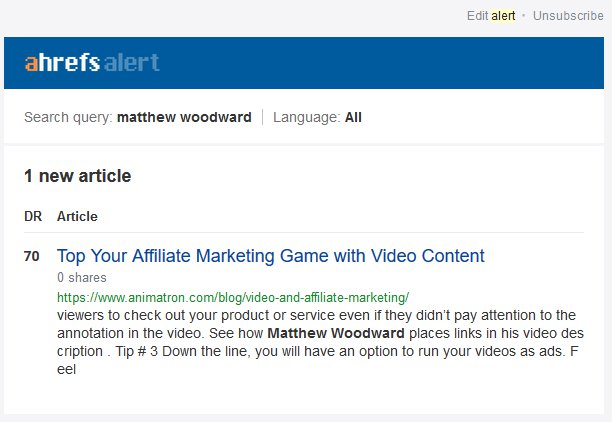
I sent them an email asking them to add a link.
A few hours later they added the link:
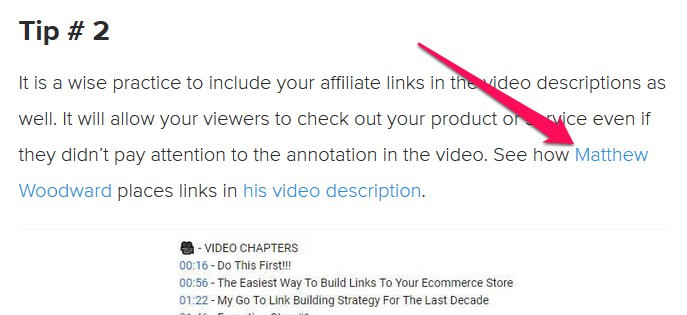
I didn’t even know the website existed.
Now I have an active DR70 link from them which is boosting my rankings.
That kind of link is easily worth $500 on the open market! Not bad for 3 minutes work, right?
So let’s look at how you can set up these alerts for yourself because we are going to be leveraging these a lot over the next 90 days…
4x Types Of Alerts You Should Set Up Right Now
There are four types of mentions you should “listen” for:
- Brand: uses of your brand name or URL
- Guest Post: relevant sites offering guest post spots
- Email: uses of your email address
- Security: malicious uses of your brand name
I’ll show you how to setup the alerts for link building later, first let’s take care of these…
1. Brand Alerts
Brand monitoring can help you find hundreds of opportunities.
(It’s what I used to get the backlink above!)
If your brand name is mentioned anywhere online you’ll want to get an alert delivered right to your inbox.
Why?
Because it presents the perfect opportunity to:
- Build relevant links: with branded anchor text
- Get Feedback: by looking at how people talk about your brand
- Network: with relevant influencers and site owners
- Grow your brand: by adding testimonials or new website logos to your site
I have my tools set up to alert me if any of these terms get mentioned:
- matthewwoodward.co.uk
- www.matthewwoodward.co.uk
- matthewwoodward
- matthew woodward
Then I start a conversation with the webmaster.
2. Guest Post Alerts
Guest posting is a great way to build links.
By setting alerts to track new pages with the titles:
- “write for us” [your niche]
- “submit guest post” [your niche]
- “bloggers wanted” [your niche]
- “become a contributor” [your niche]
- “this guest post” [your niche]
- “become an author” [your niche]
You can find these opportunities in real time.All you have to do is head over to the page and pitch them an idea.
3. Email Address Alerts
It’s handy to know when people are sharing your email online.
You can set up alerts to tell you immediately when someone has published it.
Just enter your email address into any of the alert tools below to activate it.
4. Monitor Site Security
You can also set up alerts to track unusual activity on your site.
If you’re unlucky enough to get hacked, you may find they post spam content on your site about:
- Porn
- Counterfeit items
- Supplements
- Drugs
- Gambling
You can create an alert to tell you when any of these keywords pop up on your site.It’s hard to know exactly what they will say, so I recommend using a long string of terms to cover all bases.
I currently have an immediate Google Alert set up to catch:
site:matthewwoodward.co.uk acne OR botox OR casino OR dating OR debt OR insurance OR mortgage OR Paxil OR pharmacy OR phentermine OR pheromones OR poker OR porn OR roulette OR sex OR viagra OR viagra OR XXX
So I can spring into action the moment it happens.
Here are the tools you can use to set these up…
3x Tools You Can “Listen” To The Web With
You can set up alerts with:
We get most of our best results from the Ahrefs Alerts tool so unless you have a team to process all the alerts, I suggest you just set that up.
We only use Google Alerts and Mention as supplemental supplies of link building opportunities, but we wouldn’t miss them if we didn’t have access to them.
So here is how to set them all up…
How To Set Up Google Alerts
Go to the Google Alerts website.
Let’s say you were setting up an alert for guest posts.
In the search bar you’d enter one the keywords from before and your niche:

This will show you a list of previous results for this alert.
You can use this to decide if it’s worthwhile:
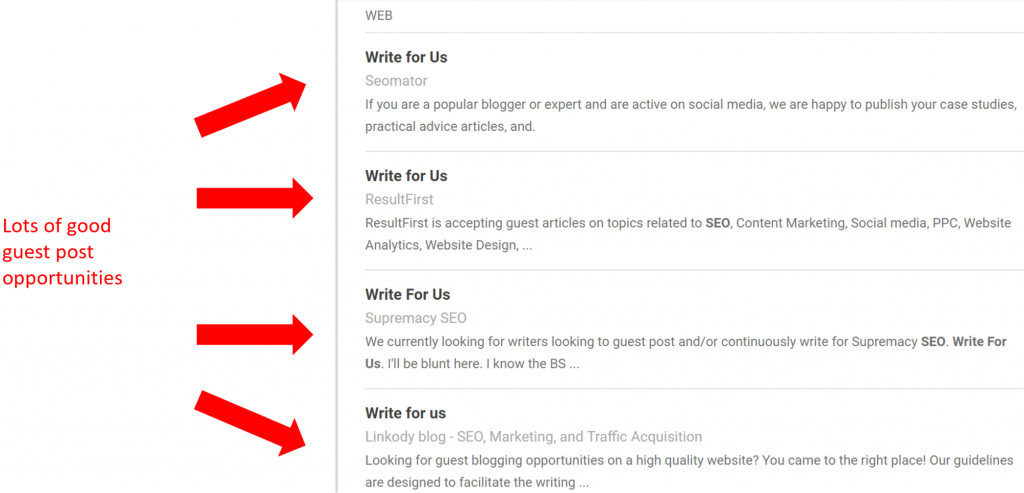
If the results look good click “Create Alert”.
Then set it up to be delivered to your email address.
How To Set Up Mention Alerts
Open the Mention tool.
Go to:
Sidebar > Add New Alert
Let’s say you’re setting up an alert for branded keywords. Select the “Company or Product” option.
Then fill in your information:
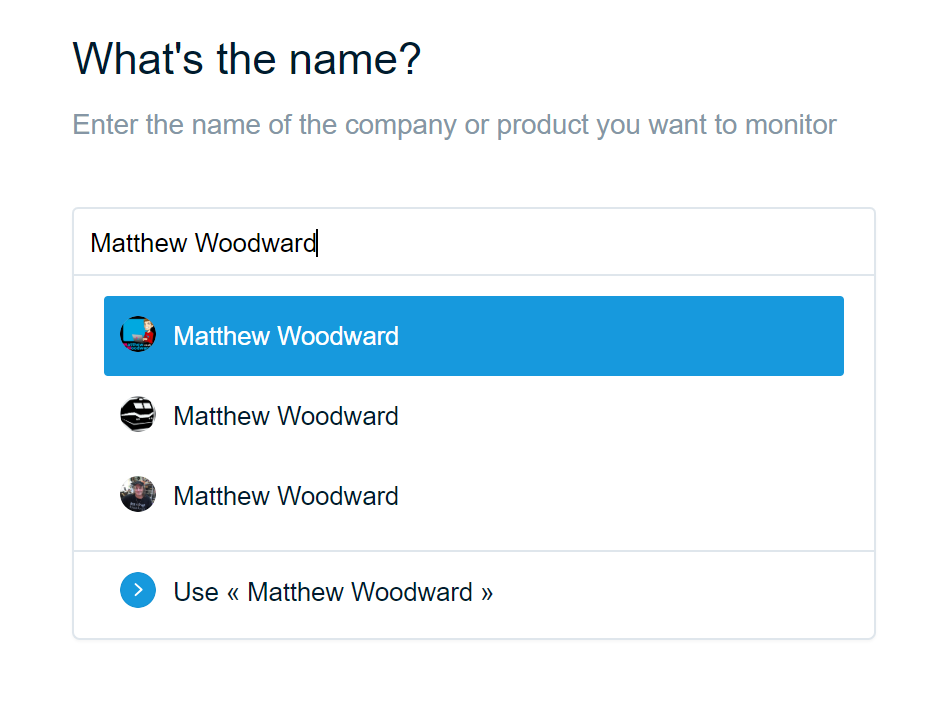
Select the correct:
- Languages
- Platforms
- Social media feeds
For your brand and you’ll then be able to see mentions in the tool.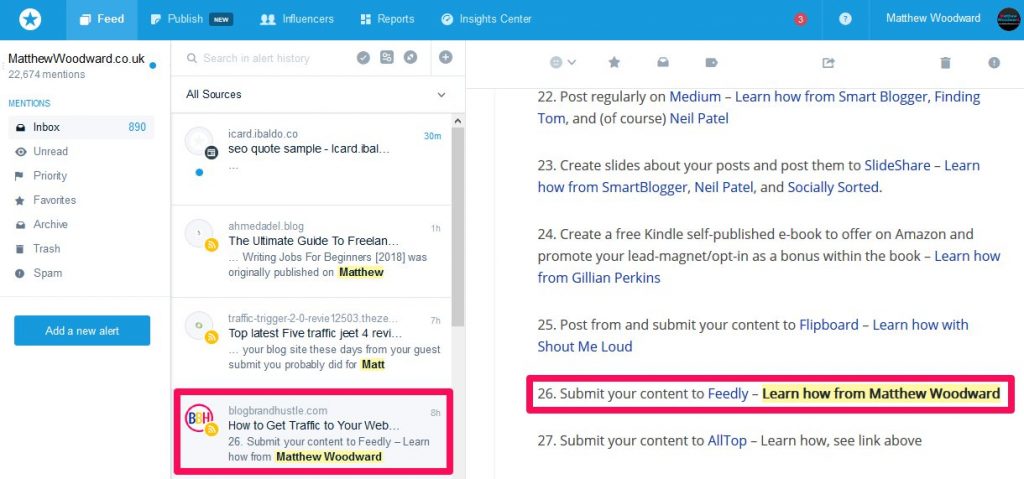
Or get them sent direct to your inbox which is how we do it.
How To Set Up Ahrefs Alerts
Open the Ahrefs Alert tool.
Go to:
Header > Alerts > Mentions
Then select the “Add new alert” option.
You should see a box like this:
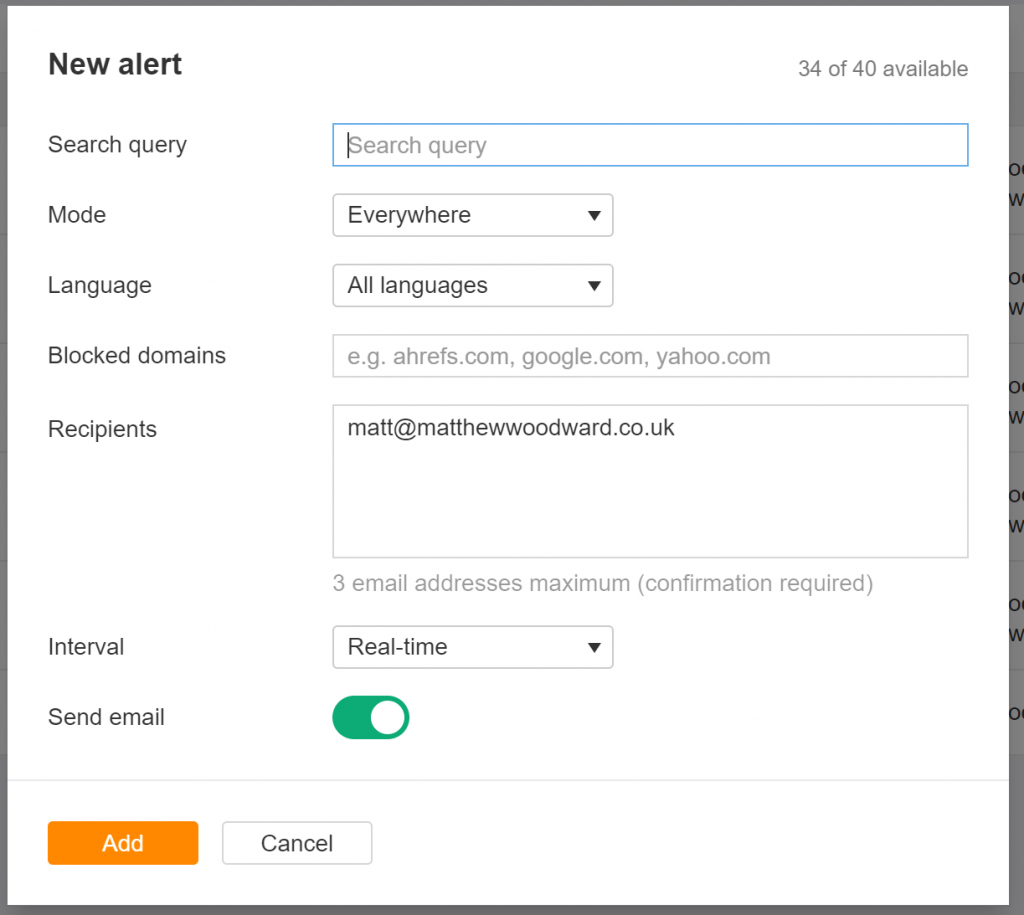
Let’s say you were setting up an alert for your email.
You’d create the following settings:
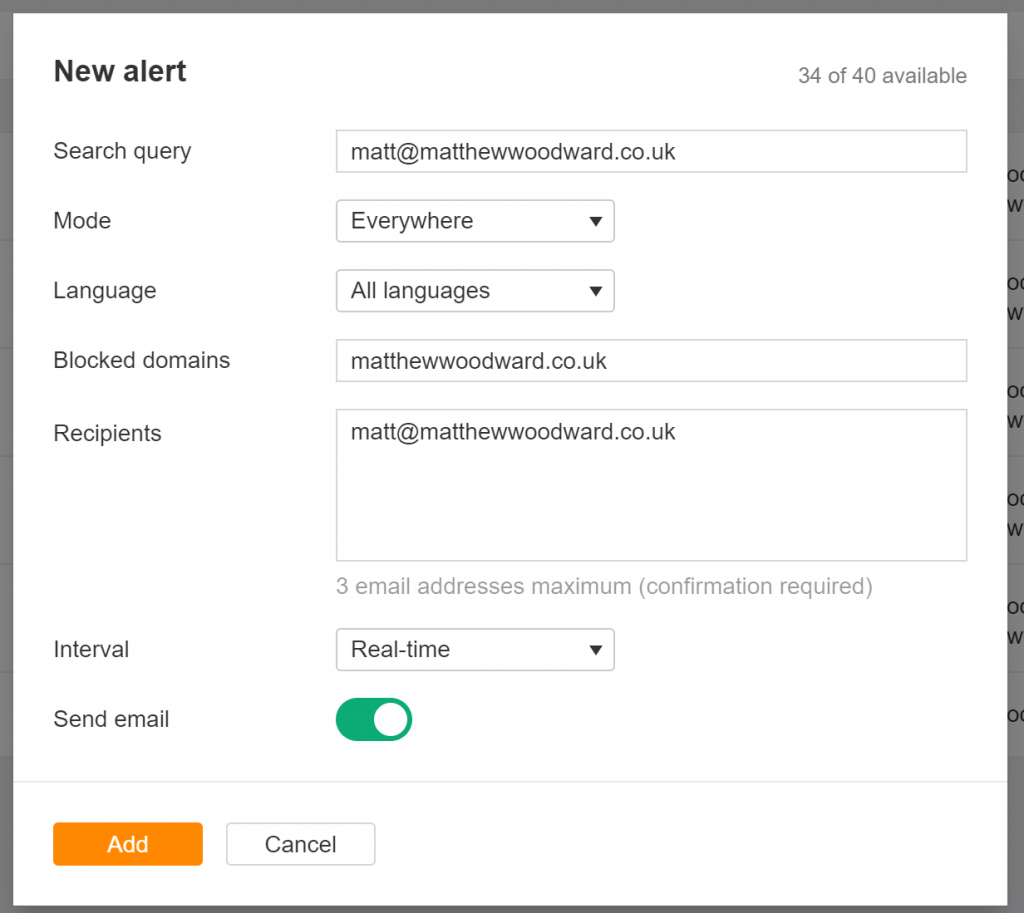
Click “Save”.
Repeat this for each alert you want to setup and you’ll start receiving alerts direct to your inbox.
Final Thoughts…
Now you have most of your tools in place it’s time for a gear change.
The next few days I’m going to give a crash course in the basics of on page seo.
Starting by installing an awesome SEO plugin that isn’t Yoast…